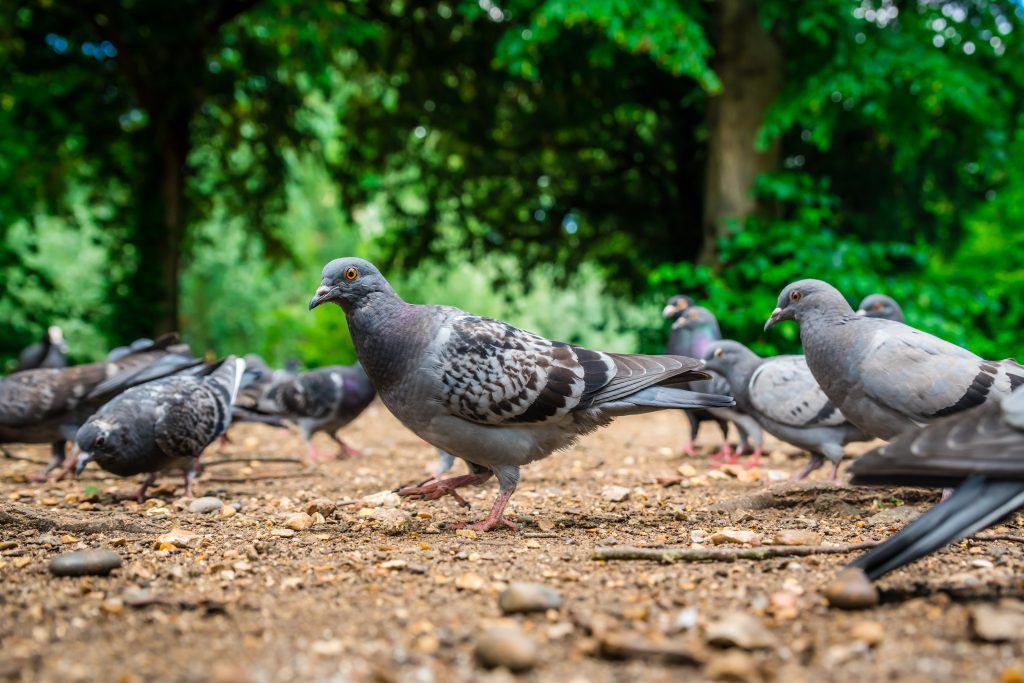Bird Control
Bird Control Guide: How to get rid of pigeons?
Understanding the Pigeon Problem
Pigeons are a common bird species, originally from North Africa and Southeast Asia, that often become a nuisance in urban and suburban areas. They tend to congregate in large numbers around human environments where there is plenty of food and shelter.
It’s important to understand their biology, habits, and potential challenges, as well as the various bird deterrent systems available to deal with them effectively.
Why Pigeon Control is Essential for Home and Garden
Pigeon control is essential because of their rapid rate of reproduction. If you put off dealing with a few bothersome pigeons, they’ll soon grow in number and you potentially have an infestation on your hands. This is much more difficult and costly to deal with.
How to get rid of a pigeon nest
How you get rid of a pigeon nest will depend on where the nest is and if there are chicks in the nest. If the nest is empty, and on a roof, in gutters, on or behind air-conditioning units, the best method is to use a ladder, a face covering and either safety or garden gloves to gently remove the nest so you don’t breathe in faecal dust or get it into your eyes.
You discard the nest in a sealed rubbish bag and bin it. If there are chicks in the nest wait till they have fledged and then remove the nest. Ensure you clean the area with a pressure washer properly so the pigeons don’t return.
Identifying Pigeon Activity
You can identify pigeon activity by hearing them, the ammonia scent of their droppings (if there is a lot of it), and by seeing them often coming and going.
Common Signs of Pigeon Infestation
The most common signs of a pigeon infestation is a visible accumulation of droppings in and around your property, and seeing a larger number of birds in the late afternoon or evening. This can indicate they are settling in to roost for the night, or are likely to have a nesting spot close by.
Health Risks Associated with Pigeons
There are a number of health risks related to pigeons to be aware of. First, their droppings are a mixture of urine and faeces and when it dries it becomes a powdery ammonia substance. This can cause flu-like symptoms, irritate human sinuses, and potentially aggravate asthma symptoms in sensitive individuals.
They carry avian specific bacteria that can potentially harm humans when exposed to faecal dusts. Their droppings are also a serious slip hazard.
Method 1: Physical Deterrents
Physical pigeon deterrents include:
- Bird free gel
The most suitable deterrent is determined by your specific situation. No one solution is suitable for all scenarios.
Method 2: Visual and Auditory Deterrents
- Ultrasonic bird repellent devices are silent to most humans and ideal for enclosed or semi-enclosed spaces.
- Sonic Repeller’s provide wide coverage, can target specific problem bird species and is ideal for large and outdoor spaces.
- Visual scare products are designed to intimidate pest birds away from your property. Birds quickly get used to static scarers thus the pattern change of these devices is vital.
Method 3: Professional Pigeon Control Solutions
Professional pigeon control solutions include baiting, trapping and culling via air rifle. These solutions are specialised and require specialist expertise. They are also used in specific situations and sometimes paired with physical deterrents for a multi-pronged approach.
When to Call in the Professionals
The appropriate time to call a professional will depend on your situation. Businesses are governed by legislation issued by the Ministry of Primary Industries in New Zealand. Private individuals on the other hand can decide when their pigeon problem gets out of hand and a professional is needed. A private individual might try a few deterrents or strategies to resolve the matter themselves.
A business, especially a food manufacturer or sensitive site, is likely to get a professional in immediately to deal with the problem before the bird numbers increase or a fine is issued.
Long-Term Strategies to Keep Pigeons Away
Pigeons will make a home for themselves where either food and/or shelter is offered. The best long-term strategy to keep pigeons away is to ensure that neither is available at your property or in your building. Keep trees well-trimmed, especially Phoenix palm trees, ensure there is no visible food source, and clean bird droppings with a pressure washer. Pigeons are attracted to their own scent and will keep on returning to the same places where their scent can be picked up.
If you are looking for any commercial and residential bird control services, do not hesitate to get in touch with our team.

